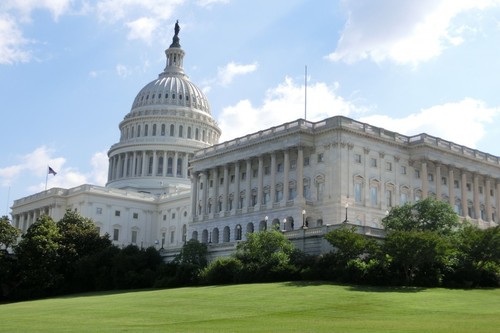Amid warnings that unchecked development could wreck the labor market
September 15, 2020

Amid warnings that unchecked development could wreck the labor market
On Thursday September 10th, the House Budget Committee held a hearing to discuss the impact of Artificial Intelligence (AI) on the US economy, and specifically on what role technology should play in the country’s recovery post Covid-19.
The hearing sought to discuss the direction of AI development, the extent to which it could affect the US economy and workforce, and what policies need to be implemented to account for this.
One of four witnesses was Darrell West, Ph.D., the vice president and director of governance studies at Brookings Institution. In his address, Mr West warned that the rapid integration of AI technologies developed in the private sector could affect the American workforce by causing job losses, job dislocation, job redefinition, job mismatch, and/or job churn.
Keeping up with the AIs
This could happen, West warned, as an increasing proportion of the population are replaced in their roles by machines, and all the while lack the opportunities for ongoing education, and little or no pension guarantees from their employers if they frequently change jobs.
The situation will only be exacerbated by the pandemic, he said, as “unemployment has grown and millions are suffering economically,” and the virus “has revealed stark inequities in access to online education, telemedicine, and opportunities for remote work.”
Investment in infrastructure, agency modernization, healthcare, education, economic development, and market competition, he argued, will be key to address “significant economic disruption due to AI and machine learning, and shifts in business models.”
MIT Professor Daron Acemoglu of the National Bureau of Economic Research presented a framework for the study of the implications of AI and automation on the demand for labor, wages, and employment.
He implored the House to consider the displacement effect that automation creates, as machines and AI replace humans, increasing productivity but reducing the share of labor in national income.
Professor Acemoglu also warned that productivity gains made thanks to automation will be slowed, unless appropriate skills are taught at equal speed.
This was also the area of focus for Susan Athey, associate director of Stanford’s Human-Centered Artificial Intelligence (HAI) project, who stressed the importance of making people feel comfortable and confident in upskilling recommendations, in order to help them complete training programs and gain the appropriate skills for the changing job market.
“I’m optimistic about the future,” she said, “but we have to be intentional about it, and we actually have to execute and follow through on promises.”
Jason Matheny, Ph.D., the founding director of the Center for Security and Emerging Technology at Georgetown University and the leader of the National Security Commission on AI (NSCAI), who contributed to a recent review of technology issues for the Working Group on Science and Technology in US-China Relations, asserted the point that US National Security relies on its dominance of AI.
A report published in June by the Paulson Institute found that the United States has a considerable lead over other nations when it comes to AI researchers, with nearly 60 percent working for US organizations.
Matheny laid out the areas of focus to keep the lead: sustained immigration of highly skilled workers, and ongoing domination on the market of semiconductor hardware used in AI systems, which, he said, could be achieved through international alliances such as the Global Partnership on AI (GPAI) founded in June to develop AI technologies responsibly, and in line with the promotion human rights, inclusion, diversity, innovation, and economic growth.
The NSCAI chief promised to give the House a full list of recommendations relating to AI and National security in the spring of next year.
About the Author(s)
You May Also Like
.jpg?width=700&auto=webp&quality=80&disable=upscale)
.jpg?width=700&auto=webp&quality=80&disable=upscale)
.jpg?width=700&auto=webp&quality=80&disable=upscale)


.jpg?width=300&auto=webp&quality=80&disable=upscale)

.jpg?width=300&auto=webp&quality=80&disable=upscale)